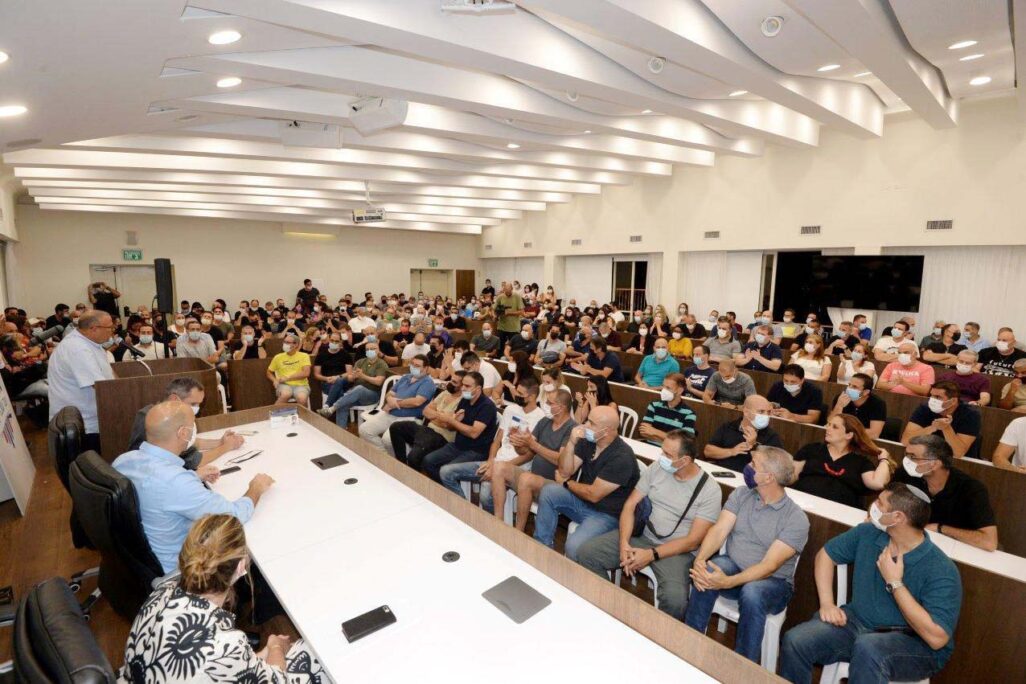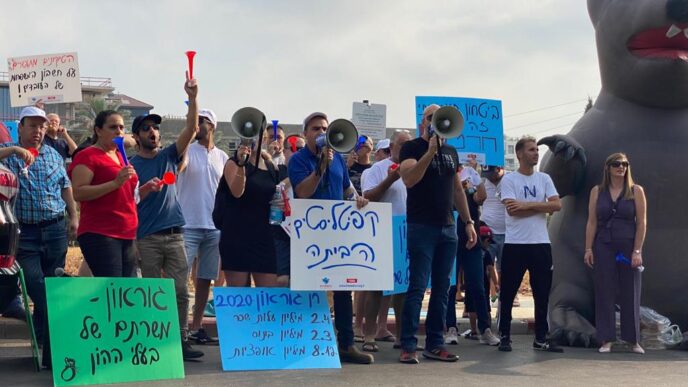
What happens when three companies move towards unification but expect their employees to remain divided?
The structural separation between Bezeq International, Pelephone and YES, is in response to a regulatory requirement imposed by the Ministry of Communications on their parent company Bezeq, with the aim of limiting centralization in the Israeli communications economy.
Bezeq has worked throughout the years to reduce the separation between the companies and blunt the regulation’s teeth, with a great deal of success. Bezeq itself has remained separate, but the three companies are gradually connecting to a company that is run jointly, under the name Alpha, with workers employed by the various companies sometimes operating within the same office.
The workers’ unions of Pelephone and Bezeq International, which represent 3,000 workers, fear that the union's continued steps will threaten the conditions of their workers and therefore have initiated a move to unite the unions – a move that the companies' joint leadership opposes. The two unions, affiliated with the Histadrut, call on their colleagues working at YES, who are affiliated with the National Histadrut, to join their union as well.
The move is being implemented against the background of the plan of Bezeq's management and the Group's board of directors to make significant and far-reaching organizational changes in its subsidiary companies. The establishment of the broader union is intended to change the current situation, in which one management works with three separate unions, and to unite forces to reach one agreement with the Alpha management, which will put the best interests of the companies and workers at the forefront.

Last week, hundreds of Alpha employees attended a special conference held at the Histadrut’s offices in Tel Aviv. The event was also attended for the first time by representatives of YES workers, who are interested in joining the Histadrut and joining the joint union of Bezeq's subsidiaries.
The purpose of the conference was to prepare for the continuation of the fight against the joint management of the three companies, who are expected to refuse to ensure the future of the workers and their activities, as part of their plans to make dramatic changes in the group. According to the workers, the planned changes threaten the job security of the group's workers and their right to unionize, and may result in the firing of many workers.

The Histadrut declared a labor dispute at Pelephone and Bezeq International. The right to strike in this dispute is currently being discussed in the Labor Court in Bat Yam, following a request for a restraining order filed by the companies' management.
"You, the workers, are leading an important sector in a world of regulations and changes, and your union is one of the most important that has formed," said Histadrut chairman Arnon Bar-David at the conference.
"From here, we send a clear message to the management: we are together, united as one person,” he continued. “We will all ensure our rights together. We will face the management as a solid and strong unit, and together we will lead the employees to a safer shore and to success."
Yaki Halutzi, chairman of the Histadrut's Cellular, Internet and High-Tech Workers’ Union, said in a statement: "The management of Alpha companies is trying to harm the workers' unions and shut us up. They know we're right. This is the face of hypocrisy – how are they allowed to unite the management of the companies while we are not allowed [to unite]? We will continue to act and protect the employees and the activities of the companies.”
Limor Lieberman-Lavi, Deputy Chairman of the Alpha Workers’ Union: "The organizational changes in all the subsidiaries of the Bezeq Group require us to disperse the smokescreen that the Alpha management has created in the past two years. Only if we unite forces for a shared and strong worker representation can we say to management: enough.”
“You promised us one communications company that will empower all the members in the group, it is time to implement and realize that,” she continued. “If you decide not to act accordingly, you will find determined workers who will do anything to ensure their conditions and maintain their jobs."
The union's chairman, Yehiel Shemen, wrote a letter to Bezeq's chairman of the board, Gil Sharon, calling on him to recognize the union as one bargaining unit, and to negotiate with the committee that represents most of the group's employees to ensure workers' rights in its organizational change processes.
In his letter, he also noted that comparing the collective agreements of Pelephone and Bezeq International employees with those of YES employees shows that the latter receive significantly worse working conditions, with a gap of tens of millions of shekels a year.
"This is unjust, untrue and certainly unfair," Shemen wrote, adding that this is one of the causes for concern that the purpose of the artificial separation between the negotiation processes with the unions is to allow this situation to continue.






